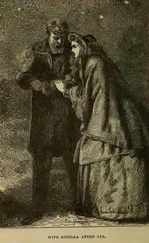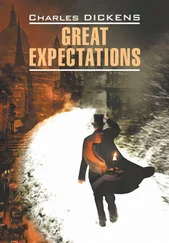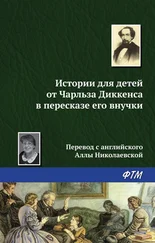The fact was, that when the five hundred pounds had come into my pocket, a thought had come into my head which had been often there before; and it appeared to me that Wemmick was a good person to advise with concerning such thought.
“Mr. Wemmick,” said I, “I want to ask your opinion. I am very desirous to help a friend. This friend is trying to get on in commercial life, [176]but has no money, and finds it difficult to make a beginning. Now I want somehow to help him to a beginning.”
“With money down?” said Wemmick.
“With some money down,” I replied.
“Mr. Pip,” said Wemmick, “take a walk and pitch your money into the Thames; serve a friend with it – but it’s a less pleasant and profitable end.”
“This is very discouraging,” said I. “Then is it your opinion,” I inquired, with some little indignation, “that a man should never – ”
“ – Invest portable property in a friend?” said Wemmick. “Certainly he should not. Unless he wants to get rid of the friend. [177]
“And that,” said I, “is your deliberate opinion, Mr. Wemmick?”
“That,” he returned, “is my deliberate opinion in this office.”
“Ah!” said I, pressing him, “but would that be your opinion at Walworth?”
“Mr. Pip,” he replied, with gravity, “Walworth is one place, and this office is another. Much as the Aged is one person, and Mr. Jaggers is another.”
“My son, sir,” said the old man, when I was visiting Mr. Wemmick’s in Walworth, “had thought that you might come to see us, and he left word that he would soon be home from his afternoon’s walk. He is very regular in his walks, is my son. Very regular in everything, is my son.”
I nodded at the old gentleman, and we went in and sat down by the fireside.
“You made acquaintance with my son, sir,” said the old man, while he warmed his hands at the blaze, “at his office, I expect?” I nodded. “Hah! I have heard that my son is a wonderful hand at his business, [178]sir?” I nodded hard. “Yes; so they tell me. His business is the Law?” I nodded harder.
The old man cried with great triumph, “My son’s come home!” and we both went out to the drawbridge.
I informed Wemmick that I was anxious in behalf of Herbert Pocket, and I told him how we had first met, and how we had fought. I glanced at Herbert’s home, and at his character, and at his having no means but such as he was dependent on his father for; those, uncertain. For all these reasons (I told Wemmick), and because he was my young companion and friend, and I had a great affection for him, I wished my own good fortune to reflect some rays upon him, and therefore I sought advice from Wemmick’s experience and knowledge of men and affairs, how I could best try with my resources to help Herbert to some present income – say of a hundred a year, to keep him in good hope and heart [179]– and gradually to buy him on to some small partnership. I begged Wemmick, in conclusion, to understand that my help must always be hidden from Herbert’s knowledge or suspicion.
Wemmick was silent for a little while, and then said with a kind of start, “Well you know, Mr. Pip, I must tell you one thing. This is devilish good of you. [180]Skiffins [181]is an accountant and agent. I’ll look him up and go to work for you. [182]”
“I thank you ten thousand times.”
Before a week was out, I received a note from Wemmick, dated Walworth, stating that he hoped he had made some advance in that matter. So, I went out to Walworth again, and yet again, and yet again, and I saw him by appointment in the City several times, but never held any communication with him on the subject in or near Little Britain. Finally, we found a young merchant, not long established in business, who wanted intelligent help, and who wanted capital, and who in due course of time and receipt would want a partner. Between him and me, secret articles were signed of which Herbert was the subject, and I paid him half of my five hundred pounds down.
The whole business was so cleverly managed, that Herbert had not the least suspicion of my role in it. I never shall forget the radiant face with which he came home one afternoon, and told me of his meeting one Clarriker [183](the young merchant’s name), and of Clarriker’s extraordinary inclination towards him. Day by day his hopes grew stronger and his face brighter. I had the greatest difficulty in restraining my tears of triumph when I saw him so happy. The thing was done, and he has that day entered Clarriker’s House, and he has talked to me for a whole evening in a flush of pleasure and success. I did really cry in good earnest when I went to bed, to think that my expectations had done some good to somebody.
But I must give one chapter to Estella.
The lady with whom Estella was placed, Mrs. Brandley [184]by name, was a widow, with one daughter several years older than Estella. The mother looked young, and the daughter looked old; the mother’s complexion was pink, and the daughter’s was yellow; the mother liked frivolity, and the daughter liked theology. [185]They were in what is called a good position, and visited, and were visited by, numbers of people. Mrs. Brandley had been a friend of Miss Havisham’s before the time of her seclusion.
In Mrs. Brandley’s house and out of Mrs. Brandley’s house, I suffered every kind and degree of torture that Estella could cause me. She used me to tease other admirers. If I had been her secretary, steward, half-brother, poor relation – if I had been a younger brother of her appointed husband – I could not have seemed to myself further from my hopes when I was nearest to her. But I had the privilege of calling her by her name and hearing her call me by mine.
She had admirers without end. No doubt my jealousy made an admirer of every one who went near her; but there were more than enough of them without that.
I saw her often at Richmond, I heard of her often in town, and I used often to take her and the Brandleys on the water; there were picnics, fe^te days, [186]plays, operas, concerts, parties, all sorts of pleasures, through which I pursued her – and they were all miseries to me. I never had one hour’s happiness in her society.
Sometimes she would seem to pity me.
“Pip, Pip,” she said one evening, when we sat apart at a darkening window of the house in Richmond; “will you never take warning?”
“Of what?”
“Of me. If you don’t know what I mean, you are blind.”
“At any rate,” said I, “You wrote to me to come to you, this time.”
“That’s true,” said Estella, with a cold careless smile that always chilled me.
After looking at the twilight without, for a little while, she went on to say:
“Miss Havisham wishes to have me for a day. You are to take me there, and bring me back, if you will. She would rather I did not travel alone. Can you take me?”
“Can I take you, Estella!”
“You can then? The day after tomorrow, if you please. You are to pay all charges out of my purse, You hear the condition of your going?”
“And must obey,” said I.
Miss Havisham never wrote to me. We went down on the next day, and we found her in the room where I had first beheld her, and it is needless to add that there was no change in her house.
From Estella she looked at me, with a searching glance. “How does she use you, [187]Pip; how does she use you?” she asked me again, with her witch-like eagerness. But, when we sat by her flickering fire at night, she was most weird.
It happened that some sharp words arose between Estella and Miss Havisham. We were seated by the fire, and Miss Havisham still had Estella’s arm drawn through her own, and still clutched Estella’s hand in hers, when Estella gradually began to detach herself. She had shown a proud impatience more than once before, and had rather endured that fierce affection than accepted or returned it.
Читать дальше
Конец ознакомительного отрывка
Купить книгу












